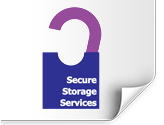The Benefits of Document Scanning Back

In this post, we discuss the various benefits of proper document scanning. As your business begins to grow, so too will the volume of paperwork you seem to generate each week. This is a good thing, since after all you're probably in business to make a profit. A growth in paperwork usually signifies that you're doing something right! However, the volume of paperwork a growing business generates quickly becomes a hindrance, and in extreme cases may even threaten future growth. Many business owners erroneously believe rapid business growth 'isn't worth it' because of paperwork 'growing pains' and the like. Once you've finished reading this post, you will be armed with several key strategies that will help you finally get a grip of disorganised documents. This helps your business grow in a significantly less stressful manner.
Significantly, sound document scanning helps you declutter your place of work. This saves a huge amount of time when it comes to sifting through important documents. Let's also not forget the positive effect a tidy office has on staff morale.
Without further ado, we now list benefits you derive by virtue of implementing sound document scanning practices.
Benefit #1: Reduces risk of document destruction or loss
Document scanning almost eliminates the risk of losing important documents. This includes documents you are legally required to retain e.g. documents relating to tax and payroll. Since scanned documents are stored electronically, following basic off-site backup procedure also ensures important documents are not at risk of loss due to theft or fire. You also gain access to a document 'audit trail'. This trail reveals an exact user access history.
Benefit #2: Speedy retrieval
Scanned documents are typically stored and indexed on advanced computer systems. You can search for documents using keywords and also apply 'filters' so you can locate documents categories by age, type and a myriad of other definable data fields. Most reputable document scanning companies will consult how you wish to search for scanned documents when you sign the contract for their services.
Benefit #3. Saves space
This benefit sounds obvious but most of our customers don't realise the amount of space savings they gain until document scanning has concluded. Digitalising documents via scanning clears unnecessary clutter. This allows you to use valuable office space for other more meaningful and productive purposes.
Document scanning tips
Now we list our top document scanning tips and tricks you can go about implementing today.
Tip #1: Hire a professional document archiving and scanning company
This has to be our number one tip. Document scanning and archiving is after all what we do best. Although this tip does cost money, you can expect to save money in the long run. This is because all documents will be scanned and indexed to the highest standards. This saves time and avoids hassle when you must access stored documents at a later stage. All of our offerings begin with a thorough consultation. This ensures our work abides by your industry's unique rules and regulations. We also ensure documents are searchable by specific criteria you set.
Tip #2: Make use of document boxes
When you send documents to your document scanning company, ensure you store documents in safe document boxes. This ensures documents are not damaged or lost during transit.
Tip #3. Remove paper clips and staples from documents
Before documents are sent to your document scanning company, it is vital you remove staples/paper clips that fold document pages together. This step ensures pages are not missed during the scanning process. Many document scanning services will remove paper clips and staples on your behalf, but this takes time and thus you will be charged for this 'extra'. Instead, save money by removing needless staples and clips before documents are passed onto your document scanning company. Also, avoid the use of glue sticks when securing paper together.
Tip #4: Implement sound document prepping
Before you send documents for scanning, ensure documents are organised correctly. This is particularly important for documents relating to a single 'case' or client. Ensure documents relating to the same matter are 'batched' together and do not mix unrelated documents. Also, ensure all documents are wrinkle free and flat. This avoids paper jamming when documents are subject to scanning.


 Based in Liverpool and Wirral, we provide document storage, scanning and shredding services nationwide.
Based in Liverpool and Wirral, we provide document storage, scanning and shredding services nationwide.

